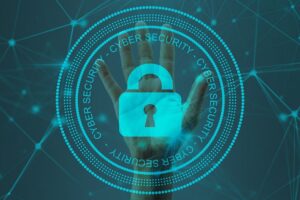In today’s digital age, cybersecurity has become a crucial aspect of our lives. As we increasingly rely on technology for everything from personal communication to business operations, protecting our data from cyber threats is more important than ever. Here’s an overview of why cybersecurity is essential and how you can protect yourself.
Why Cybersecurity Matters
- Rise in Cyber Attacks: Cyber attacks are becoming more frequent and sophisticated. Hackers use various methods like phishing, malware, and ransomware to steal sensitive information or disrupt services. High-profile breaches affecting companies and individuals underscore the need for robust cybersecurity measures.
- Data Protection: With more personal and business data being stored online, safeguarding this information from unauthorized access is critical. Cybersecurity helps ensure that sensitive data, such as financial records and personal identities, remain confidential and intact.
- Business Continuity: For businesses, a strong cybersecurity posture is vital for maintaining operations. A successful cyber attack can lead to significant financial losses, reputational damage, and operational disruptions. Ensuring cybersecurity can help prevent these consequences and ensure business continuity.
- Compliance and Legal Requirements: Many industries are subject to regulations that require stringent cybersecurity measures. Compliance with laws such as GDPR, HIPAA, and others is necessary to avoid legal penalties and protect customer trust.
Key Cybersecurity Practices
- Strong Passwords: Use complex passwords that combine letters, numbers, and symbols. Avoid using easily guessable information like birthdays or common words.
- Regular Updates: Keep your software and systems updated. Updates often include security patches that protect against the latest threats.
- Two-Factor Authentication (2FA): Implement 2FA for an added layer of security. This requires a second form of verification beyond just a password.
- Secure Networks: Use secure Wi-Fi networks and avoid public Wi-Fi for sensitive transactions. Consider using a Virtual Private Network (VPN) for added security.
- Employee Training: For businesses, educating employees about cybersecurity best practices can prevent many common threats. Regular training can help employees recognize and avoid phishing scams and other attacks.
- Backup Data: Regularly back up important data to secure, offsite locations. This ensures that you can recover your data in case of a cyber attack.
The Future of Cybersecurity
As technology evolves, so do cyber threats. Emerging technologies like artificial intelligence and the Internet of Things (IoT) introduce new vulnerabilities. However, they also offer new tools for enhancing cybersecurity. Staying informed about the latest trends and adapting to new threats is crucial for maintaining a secure digital environment.
Cybersecurity is an ongoing process that requires vigilance and proactive measures. By understanding the importance of cybersecurity and implementing best practices, individuals and businesses can protect themselves against the ever-growing landscape of cyber threats.
For more detailed information on cybersecurity trends and practices, you can visit resources like Cybersecurity & Infrastructure Security Agency (CISA) and National Institute of Standards and Technology (NIST).
Stay safe and secure in the digital world!











